Looking for authentic and unusual things to do in Portugal? Welcome to a land of World Heritage Sites, hidden coves, and fiendishly tasty pastries. Here’s our collection of unique experiences and beautiful hideaways to fill a thousand trips.
Disclosure – Some of the other recommendations were hosted, some were not, but all were only included because I like them and would gladly do them again. Also, if you book or buy through some of the links on this site, we may earn a small commission at no extra cost to you. So, cheers for that.
17 Authentic and Unusual Things To Do in Portugal
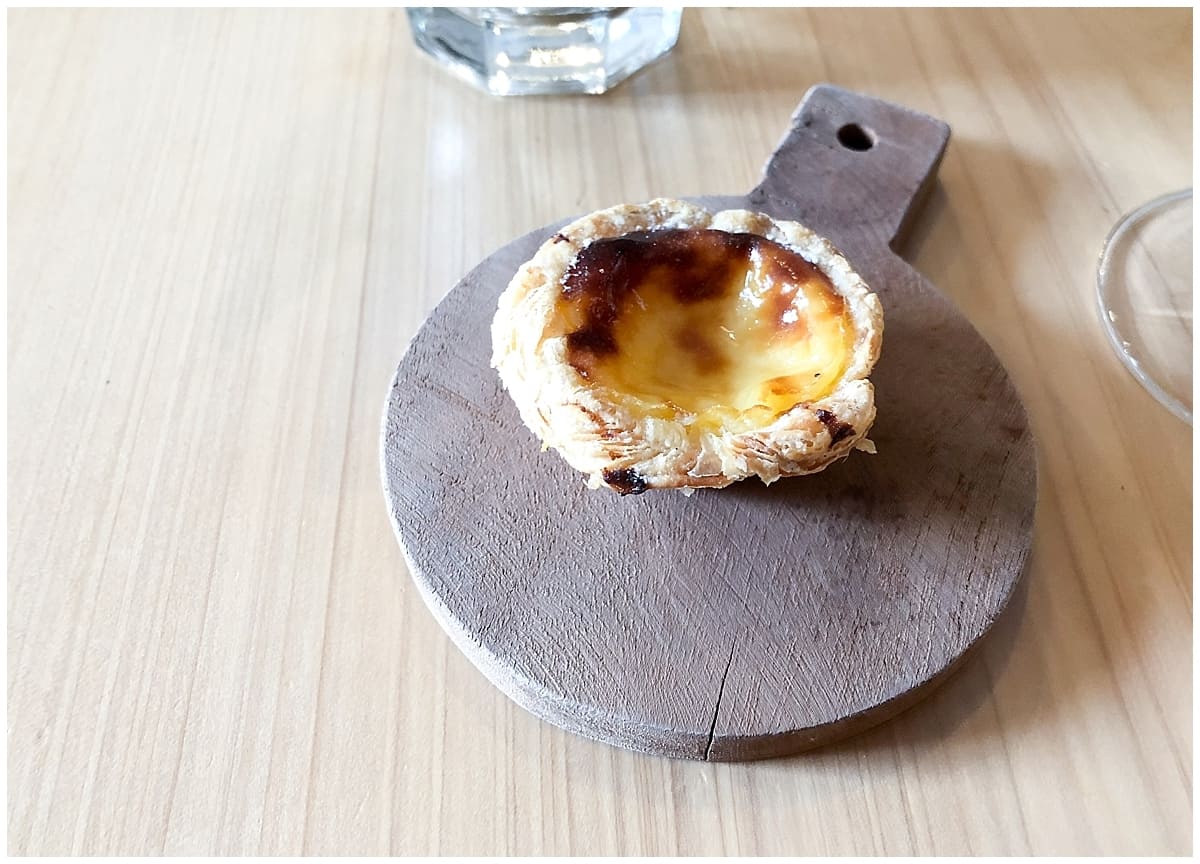
Eating a pastel de nata counts as an authentic thing to do in Portugal.
Eat At Least One Pastel de Nata
Oh, they may be all the rage across the world now but the Portuguese have always known what the rest of us are only just discovering: few things taste better than a fresh, crisp pastel de nata.
Pasteis de nata (that’s the plural form) came into existence in Belem, near the water in Lisbon. You can visit the original cafe. It’s fittingly close to the Discoveries Monument, but be prepared to queue.
Otherwise, you can find these tasty treats all across the country. Don’t be put off by the egg and custard tart description. They are moist, sweet but not sickly, and definitely moreish. Happily, eating one is one of the most authentic things to do in Portugal you can think of.
- Where to find them? Everywhere! But the original cafe dating back to 1837 is the Pasteis de Belem in Lisbon. It’s just one of many great places to eat in Lisbon.
Listen to Fado
Portugal’s soulful, nearly sorrowful, music floats with a weight that’s hard to absorb. Its earliest melancholic roots stem from the 1830s in Lisbon and it’s often described as matching the word saudade: a feeling of loss and longing and lifelong damage.
Unsurprisingly, this doesn’t make it the top choice for a cracking night out. But it’s fascinating for periods of reflection. The rest can be chalked up to one of life’s lessons in a rounded education.
- Where to find it? Check out this guide to the best fado in Lisbon.
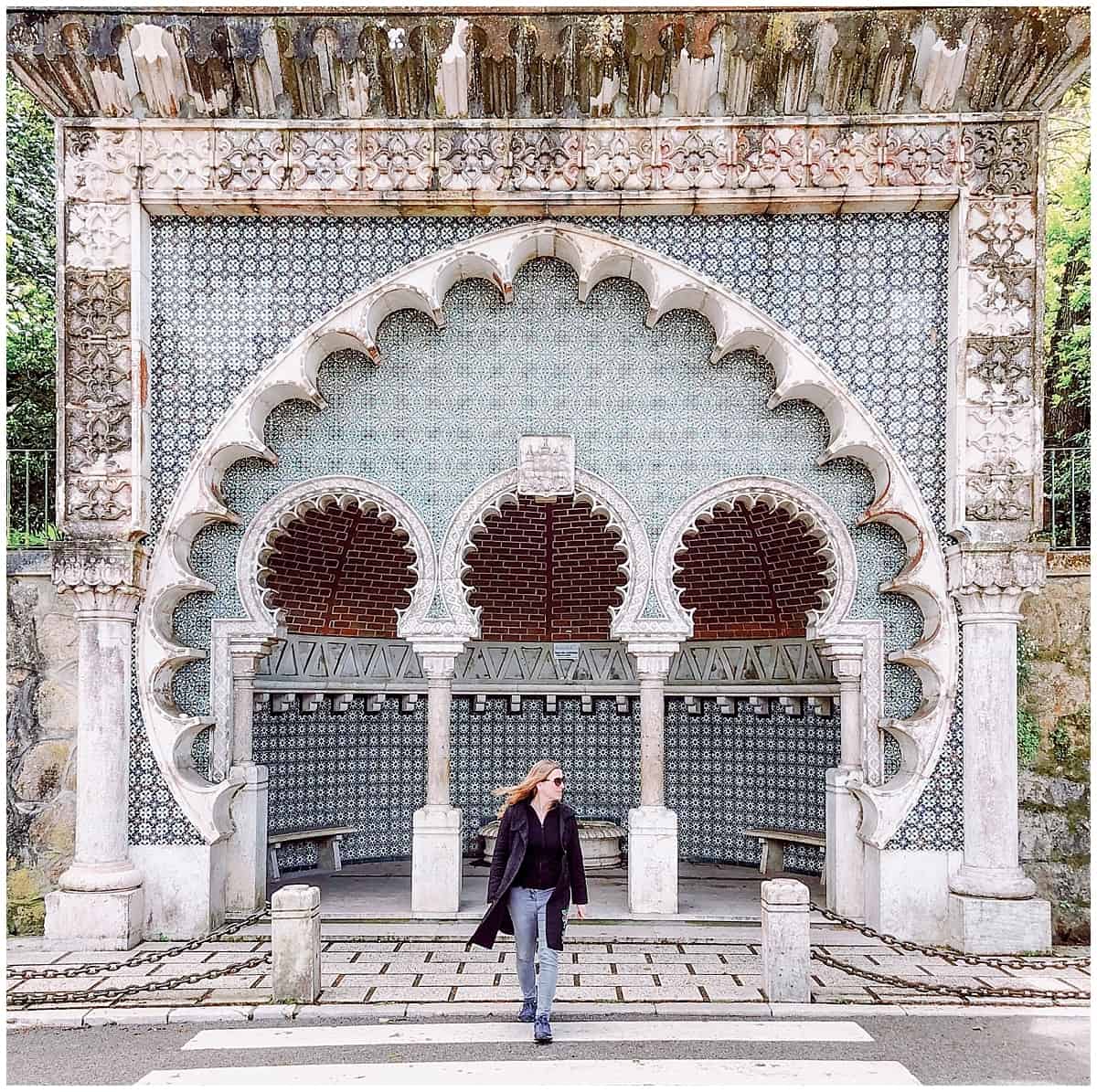
Discover whimsical architecture and UNESCO World Heritage in Sintra
Visit the Leafy Town of Sintra
Perfect as a day trip from Lisbon, Sintra is often described as a whole different world. Once a royal sanctuary, this UNESCO World Heritage Site area brims with castles, palaces, parks and quiet backroads. It’s an explosion of colour and architecture in midst of lush, green woods.
The Sintra National Palace mixes Moorish influences with Manueline style, while the 19th century Pena National Palace provides those insta-famous whirling designs and tops them off with sweeping views.
- How to get there. It’s a one hour train ride from capital city Lisbon, with a moderate walk to the main sites.
Take a Food Tour
Despite our global world, you’ll find flavours in Portugal that you’ve never found before. The Portuguese have a passion for their food, and a walking food tour provides a way to embrace that passion and make your stomach happy.
- Where to find one? In Coimbra, I’d recommend Coimbra’s Best Flavours to learn the history (and gossip) behind the city’s tavernas. Check out our Lisbon food guide: where to eat in Lisbon for recommendations for the capital.

Record breaking waves at Nazare – Photo Credit Luis Ascenso
Stand in Awe at the Lighthouse in Nazare
Brace yourself. You can find the biggest ever surfed at Praia do Norte in Nazare. The Big Wave Awards took place while surf smashed records at 100 feet. Just take a look at the photo above from Luis Ascenso.
If that kind of surf is not for you (and unless you’re a world class athlete, it shouldn’t be) don’t worry. You can still visit the lighthouse in Nazare and hike around the coast.
- Where to find it? On a popular beach resort, around 90 minutes north of Lisbon.
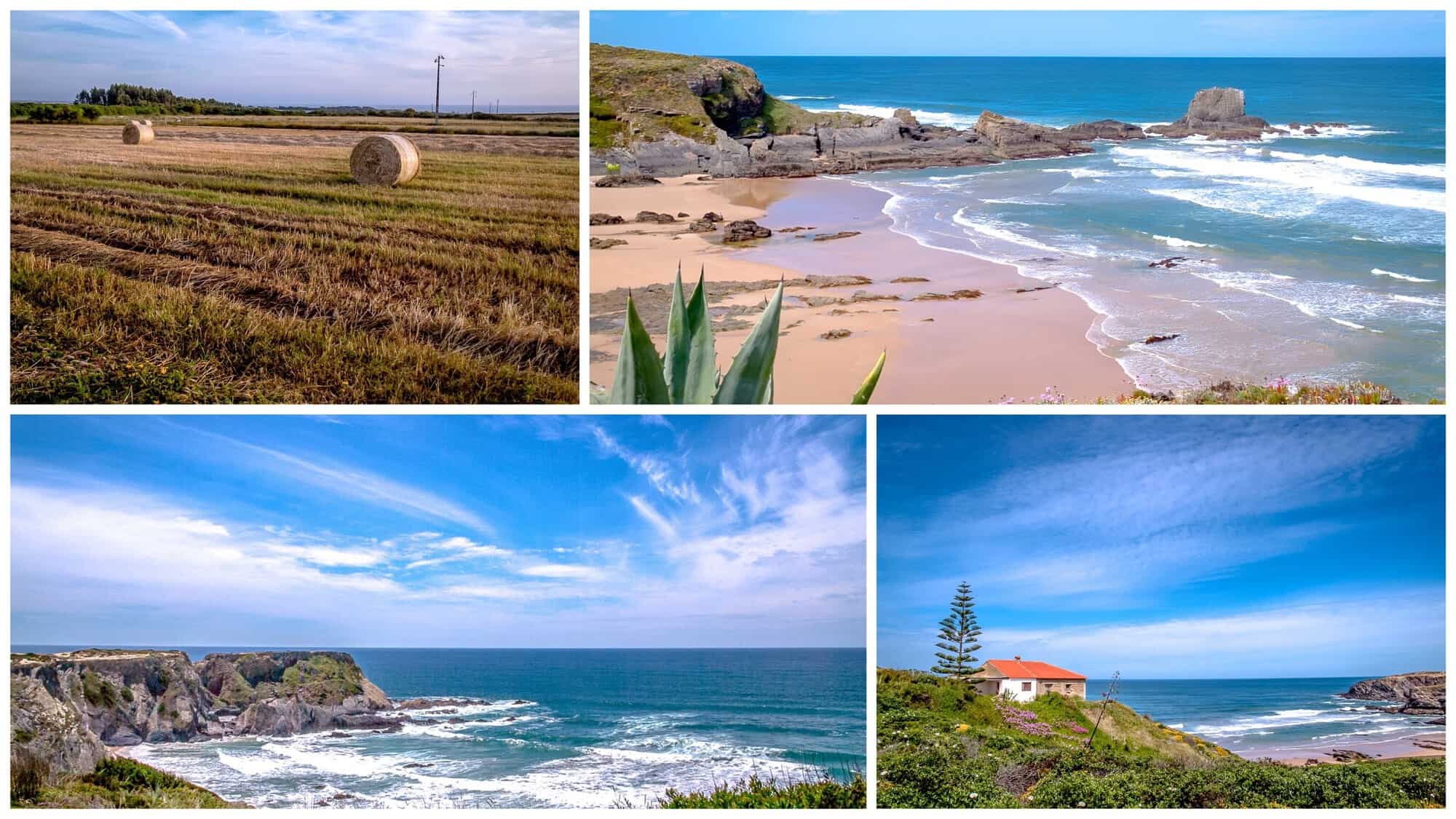
Europe’s Largest Coastal Park
Hike Europe’s Untamed Coast
Over 50 species of bird know what you don’t: that the Costa Vicentina on the Alentejo Coast is as close to paradise as many of us will come. Completely unspoiled with gentle valleys, rocky cliffs, soaring pines and soft sand beaches, it’s a heaven for hikers and Europe’s largest coastal park.
- Where is it? Drive or train for 2.5 -3 hours to reach the Costa Vicentina coast.
Make New Friends
Play with children in any number of Lisbon’s green and friendly parks (this is assuming you already have your own children. If not, this might be considered weird.) Portugal is famed for its warmth towards families, with good reason. We managed to chat with so many people when travelling through Lisbon with toddler Lab.
- How to do it: simply take your child to any one of the many playgrounds scattered throughout the cities.
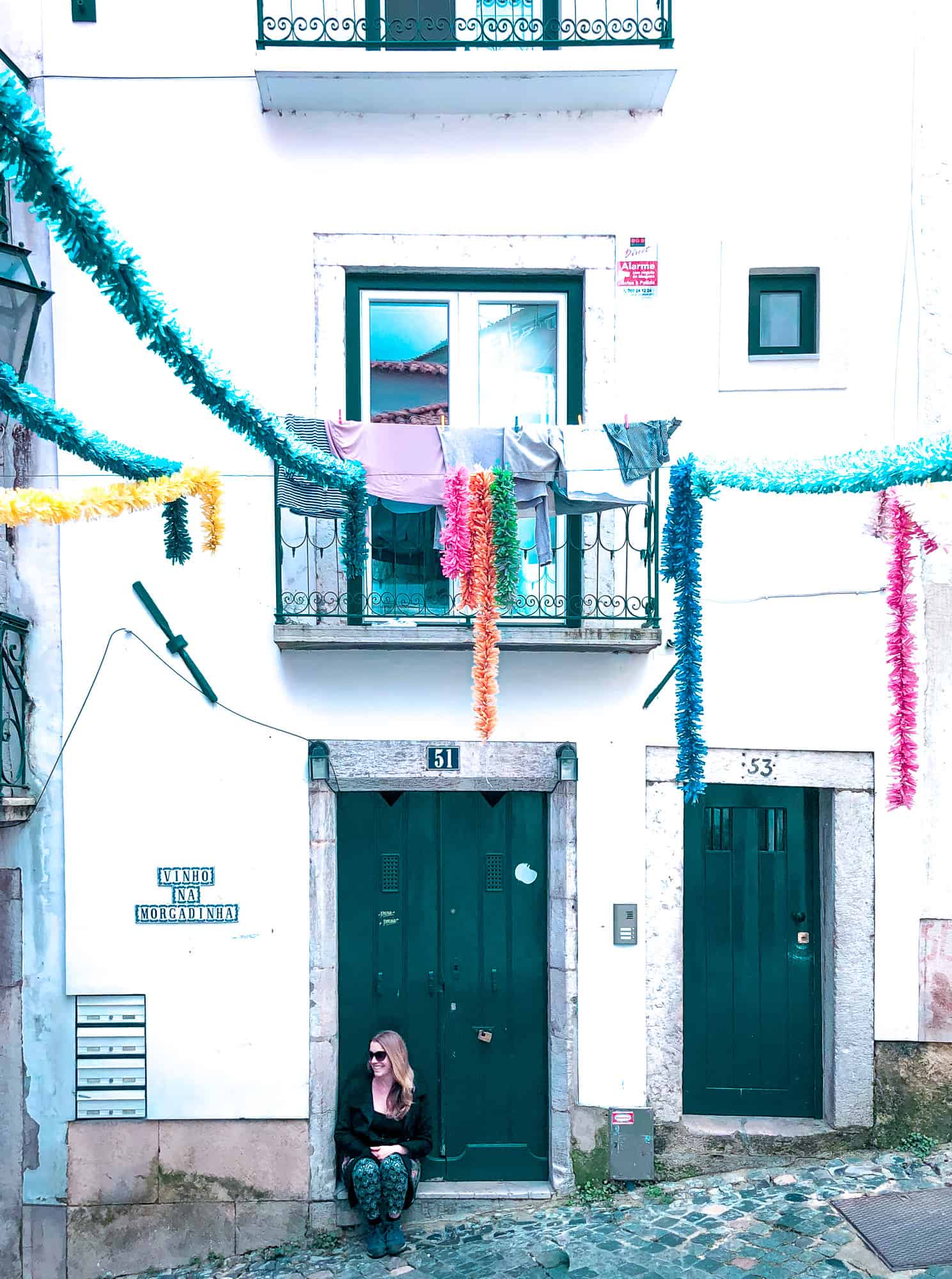
Climb the Narrow Streets of Alfama, Lisbon
OK, so wandering around Alfama isn’t going to win any prizes on the list of non-touristy things to do in Lisbon. But the streets are so steep and so narrow, that head there when humidity and heat frighten sensible people lesser mortals and you’ll have the place to yourself.
Traditionally, this area from the Tejo Estuary up to the Castelo de São Jorge used to be tough and salty, the working sailor neighbourhood. Today, though, you’re more likely to see traditional craft boutiques and hipster cafes, with the soulful song of fado drifting through the air.
- How to get there. Give your legs a workout and climb up from the Tejo Estuary. Otherwise, take the iconic tram 28.
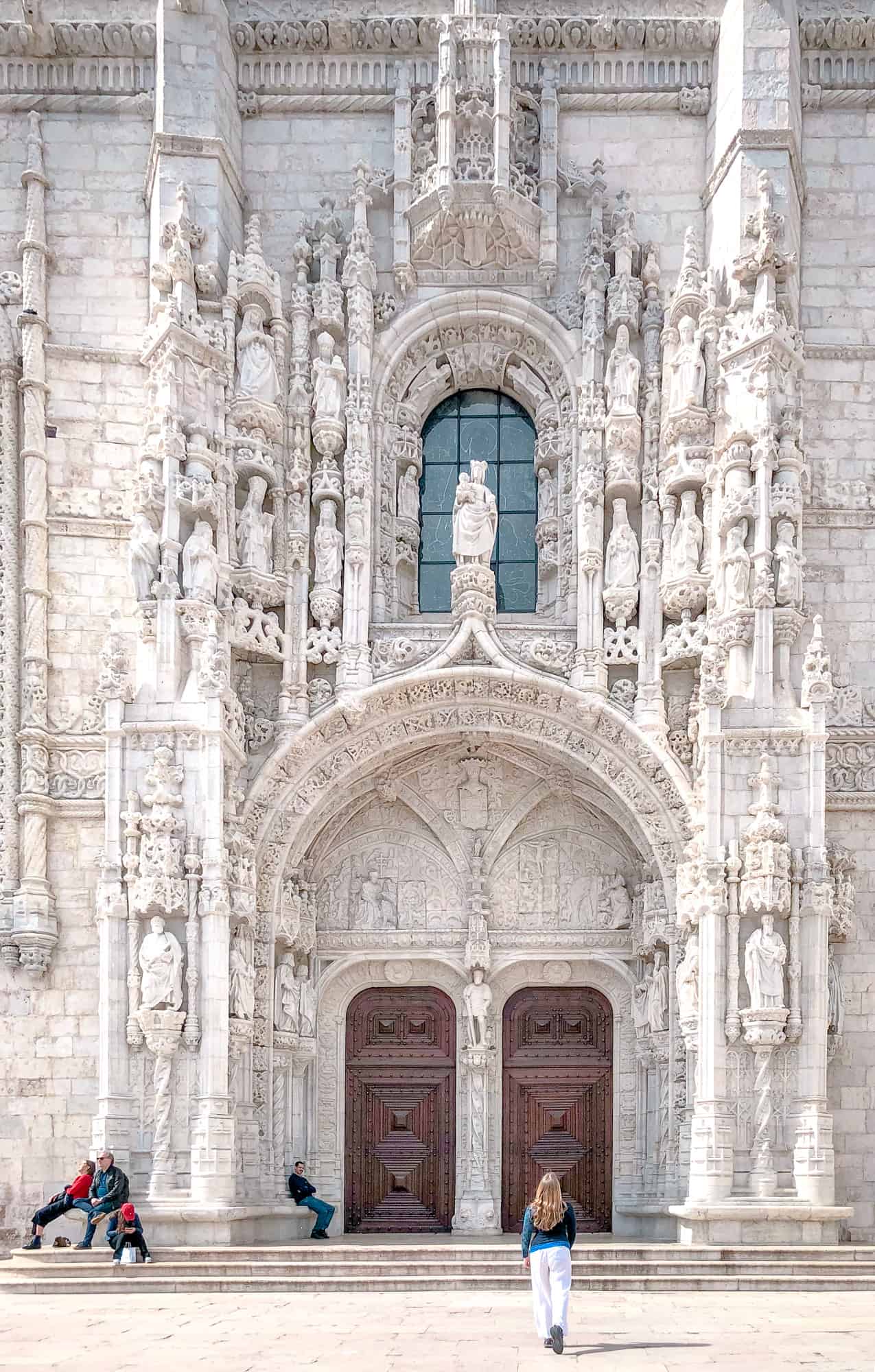

Make a Day of it in Belem, LIsbon
Spend the afternoon wandering along the riverside in Belem, luxuriating in the open spaces and street music. Buy an ice cream (or another pastel de nata at the original cafe) to enjoy while overlooking the Discoveries Monument.
Built on the north bank of the Tagus as late as 1960, the stone ship marked the 500 year anniversary of the death of Prince Henry the Navigator. The line up includes the great and “good” of the era: King Manuel I, poet Camões with verses from The Lusiads, as well as household explorer names Vasco da Gama and Magellan.
Finish your afternoon with a visit to UNESCO World Heritage Site the Jeronimos Monastery, a stony labour of love within walking distances of the water. Also known as the Hieronymites Monastery (in case you’re confused en route) it also hails from the “age of discovery” with the cloisters of coiled rope stone, sea monsters and coral.
- How to do it? Simply take the bus or tram to Belem and walk around. You’ll need a ticket for the monastery, so head early to cut down on queues.
Enjoy Island Life
It’s easy but still unforgivable to forget that Portugal isn’t all about the mainland. The islands of the Azores and Madeira twinkle in the mid-Atlantic, snuggling vineyards between rocky coves and fishing villages.
- How to get there.Search for flights to Madeira and the Azores here.
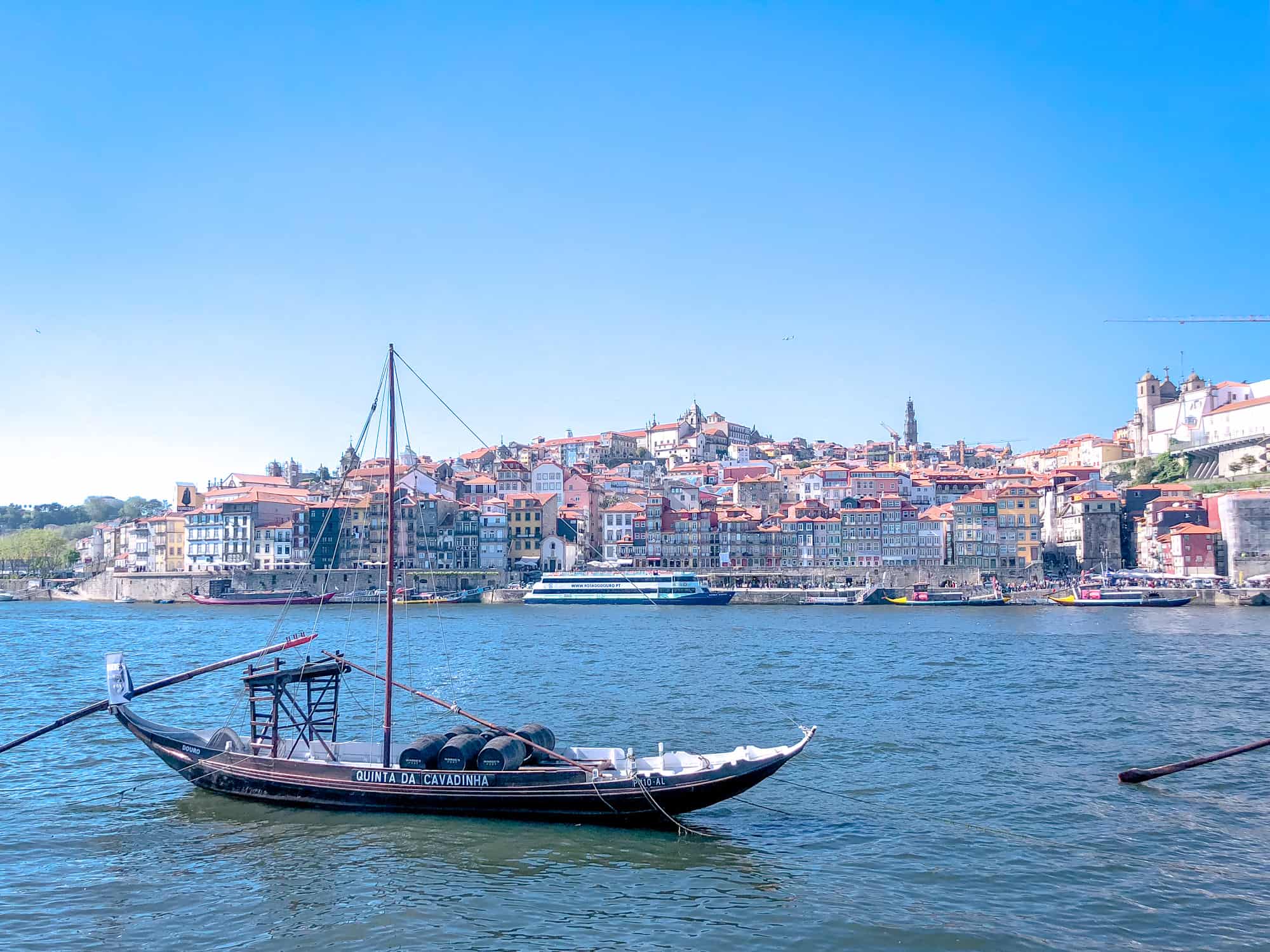
Visit a Winery in Porto
For centuries, rabelo boats have carried barrels along the Douro Valley to the wineries in the city of Porto. To the rest of the world, they know the result as the dark ruby port. Not only can you visit the wineries in Porto to see (and taste) the process but the city itself is a treat.
Sure, there’s the terracotta charms of the historic centre, now a UNESCO World Heritage Site. But you’ll also find plenty of unusual things to do in Porto that stride into the 21st century as well. Such as…
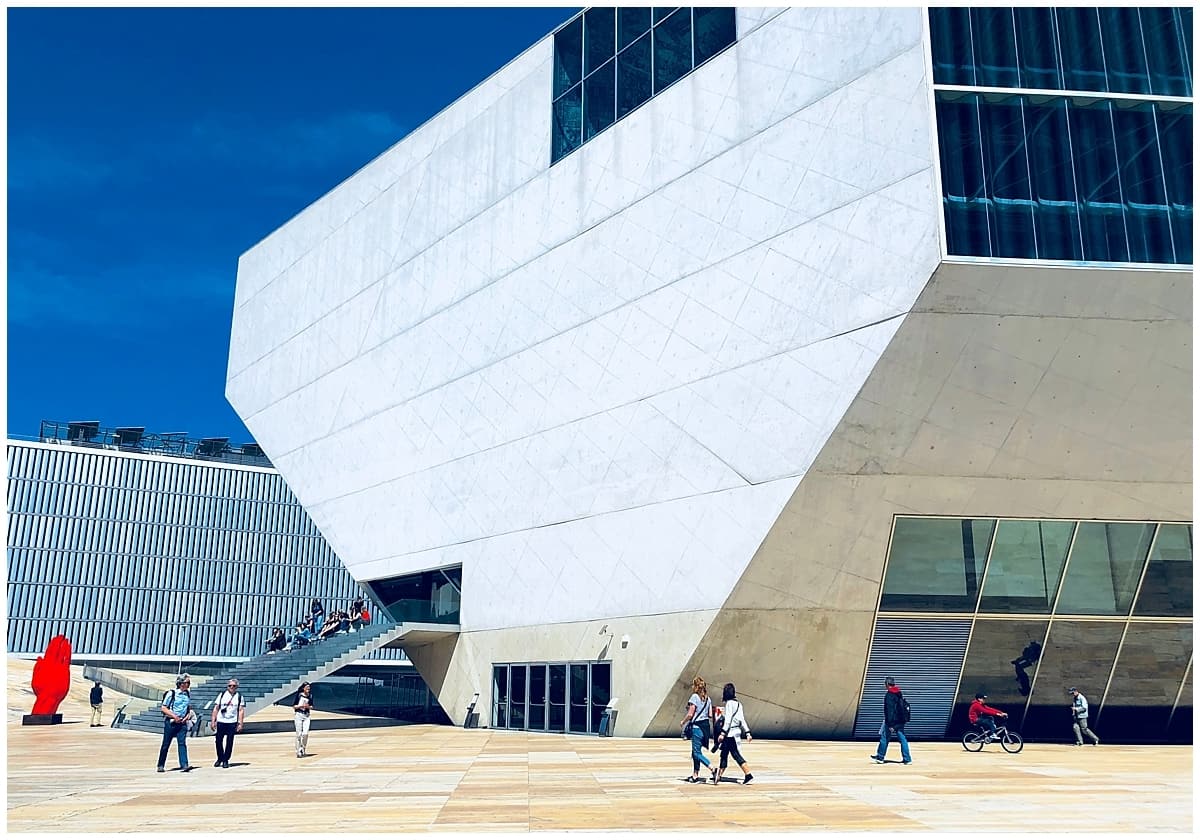
Drink a Cool Coffee at Casa Musica
When looking for unusual and authentic things to do in Portugal, it isn’t all about walking through the past. Stop for coffee or catch a concert at Rem Koolhaas’ Casa de Musica in Porto (and watch the skateboarders outside.)
This nine-floor-high asymmetrical polyhedron plays tricks on the eye, while attracting attention to the ear. Walk inside and see the mirage from the staircases inside and out. Of course, the ideal situation involves catching a concert here. But don’t be put off if that’s not possible. It’s a building worth visiting for the sense of modern nautical architecture and innovation anyway.
- How to find it. Take the metro to the Casa Musica Station in Porto.
Munch a Queijada
Quiejadas may not have achieved the insta-fame of pasteis de nata, but make no mistake. The original queijada (kay – e- harder) hails from Sintra near Lisbon and contains cheese, eggs, butter and milk to produce a marizpan-like filling with a bite. It’s another one of those unusual and authentic things to do in Portugal you can take home, too.
- Where to find them. In small cafes in Sintra, Evora and the islands.
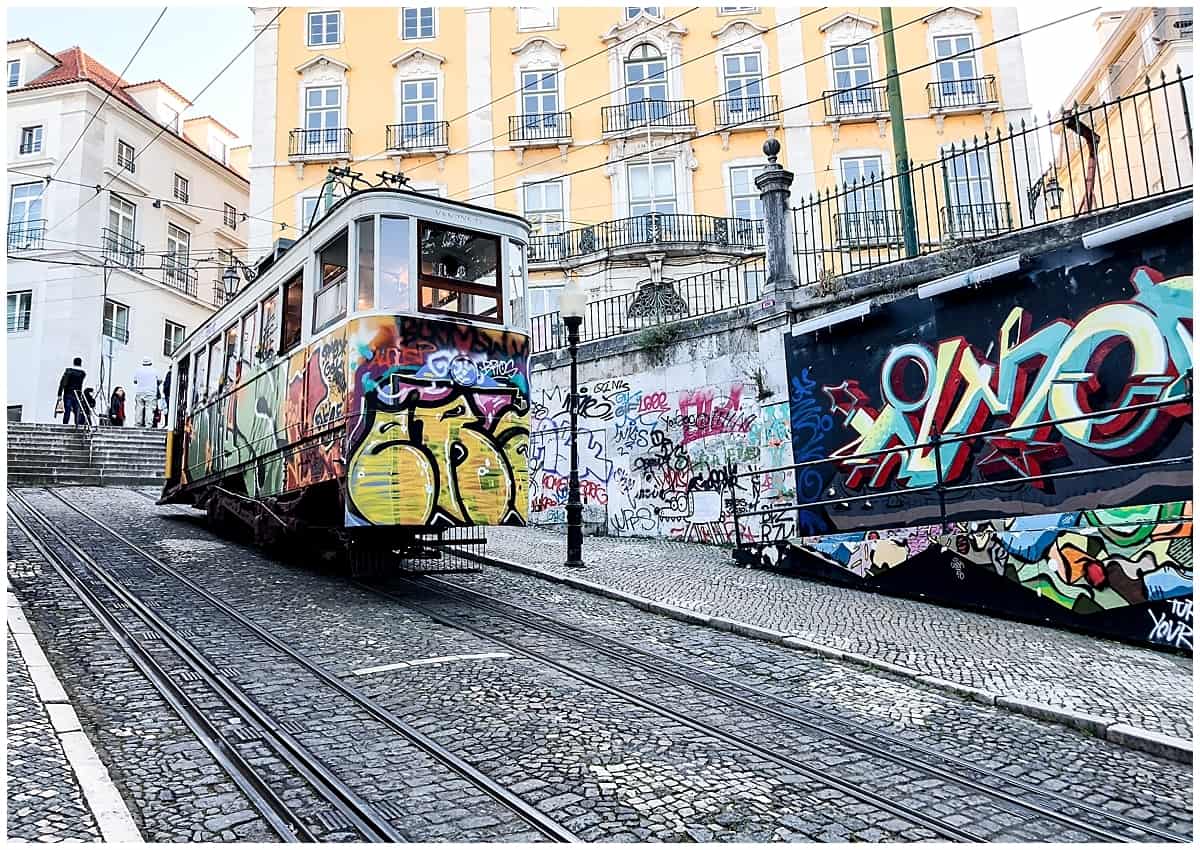
Trams in Lisbon – a favourite photo thing to do in Portugal
Take a Photo of a Tram
In a city with seven steep hills, Lisbon has taken an everyday piece of infrastructure and turned it into a work of art. You wouldn’t be the first to hang around on street corners hoping for the perfect snap…
Feast on Ovelho Curado and Presunto
Strong and sloppy, ovelho curado cheese often arrives with sliced presunto ham at the start of the meal. Irritatingly, it often comes with a hidden charge at the end of the meal but as it tastes so good, that can almost be forgiven.
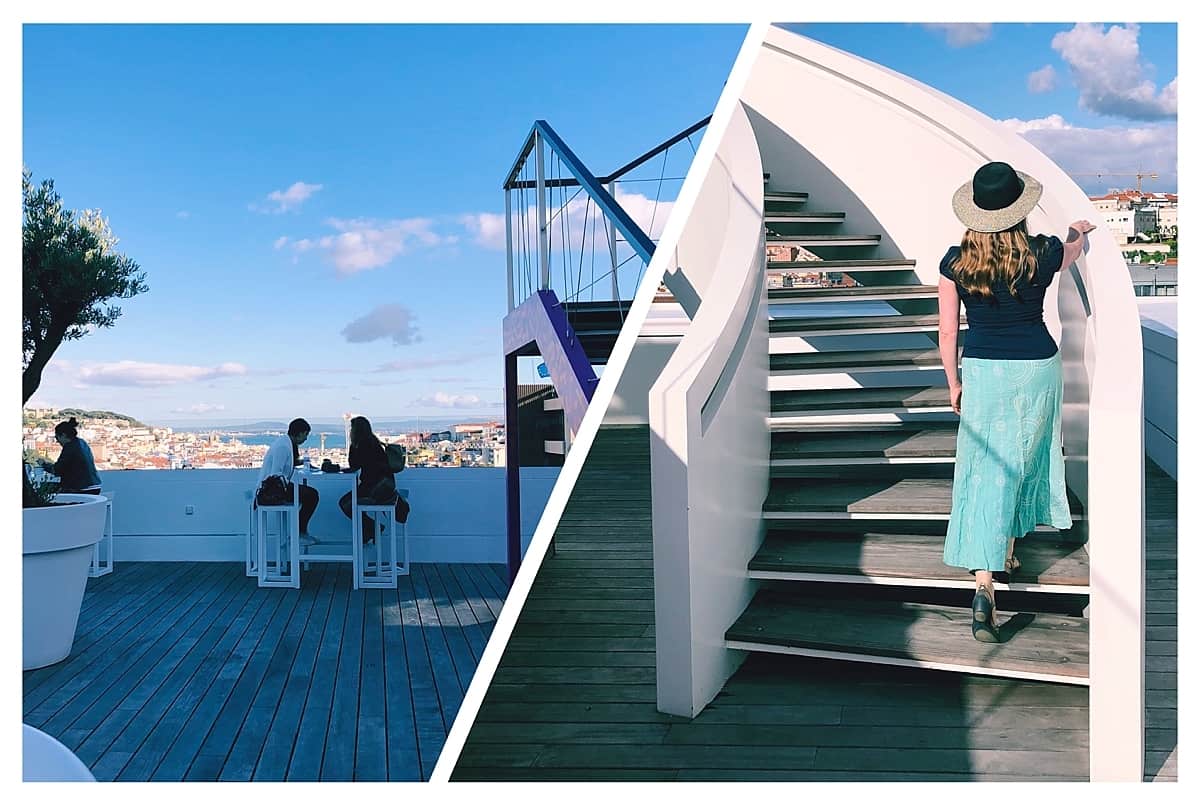
Sip Cocktails at the Sky Bar with a View of Lisbon
Sip cocktails on the rooftop bar at Tivoli Avenida Liberdade hotel and watch the sun set across the city. Often called the Champs Elysees of Lisbon, Avenida Liberdade strides through the city with all the boutiques, five star hotels and broad, leafy expanses you’d expect. If you can’t stay at the Tivoli, you can still get a taste of the highlife with pomegranate-studded martinis and one of the best views in town. It’s one of those beautiful and unusual things to do in Lisbon.
Did you enjoy this article on finding authentic and unusual things to do in Portugal?
Add your ideas below and bookmark this now for your next trip.
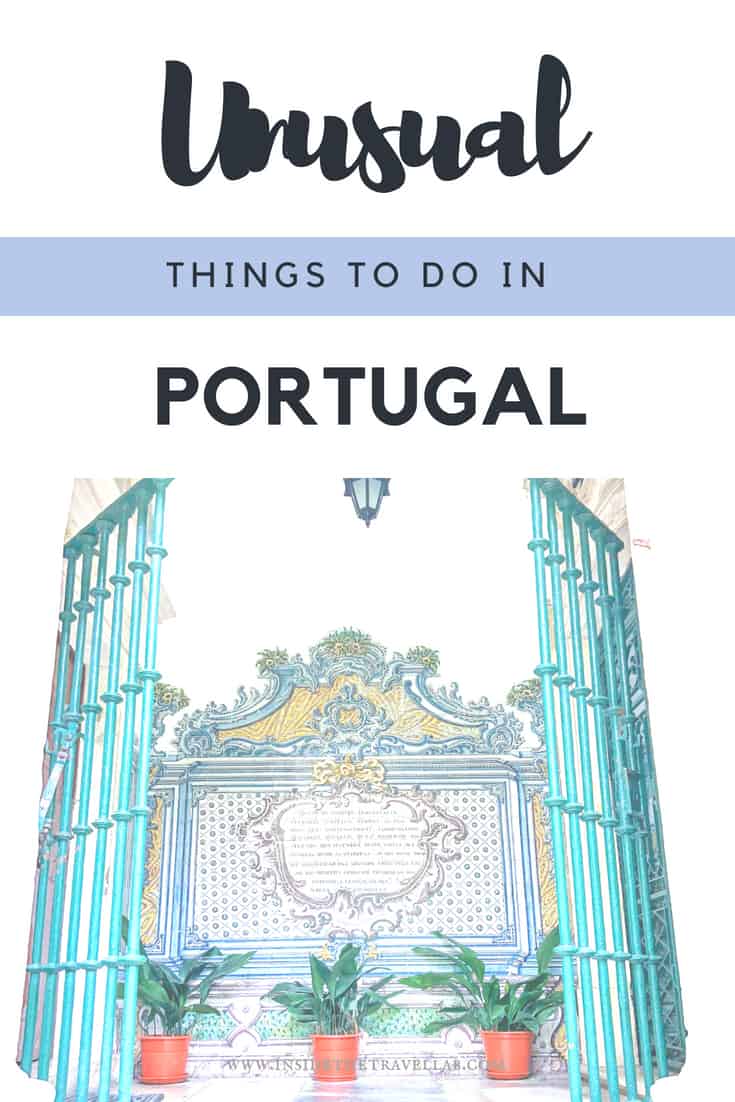

More on Travel in Portugal
- Explore unusual things to do in Porto, from UNESCO World Heritage to cutting edge design.
- Work out where to eat in Lisbon with our food guide crafted from local advice.
- Is Porto worth visiting?
- Why are the cork trees in Portugal so important?
- Why you should visit the Costa Vicentina in the Alentejo, Portugal
- Your guide to the best neighbourhoods to stay in Lisbon
- Avalon Alegria Review: Is a Portugal Douro River Cruise for You?
- The best souvenirs from Porto
- Bola de Lamego: the Portuguese treat that’s better than it looks
- How to spend one day in Porto
- Secret streets of Lisbon: your self-guided tour

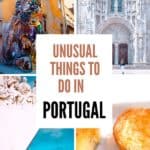
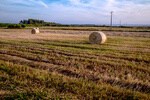

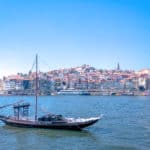
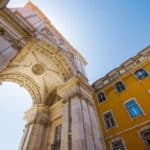
Great post! The information was really helpful!
Thank you – glad it was useful.
Just a couple of clarifications: the “pasteis” you mention at the beginning of the article are called ‘pasteis de bacalhau’ and one is called a ‘pastel de bacalhau’ …same as ‘pasteis de nata’ is the plural of ‘pastel de nata.’ And just one more thing; tapas are Spanish. They may be showing up in Portugal, but they didn’t originate there. We have ‘petiscos’ in Portugal. The following article may help explain it: https://www.tasteporto.com/petiscos-not-tapas/
Congrats on doing a good job on the piece.
I really, really appreciate this comment – thank you! That makes much more sense about the singular/plural aspect. I will update when I get back to my desk!
And, yes, I do know that tapas were originally Spanish…! I mention them here in a more generic way, as the word has become more international. I fully understand your point of view, though. It reminds me of the pintxos/tapas frustration in San Sebastian too! Or the English/British dilemma.
That’s a lovely article and the tours look great! If I ever make it back to Porto (which I hope to) I’d love to check them out.
Thanks so much for again for the thoughtful comment.
Cheers, Abi